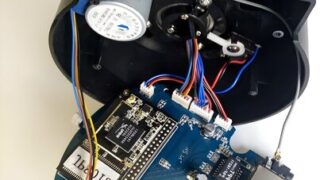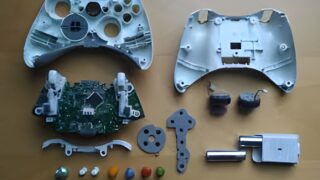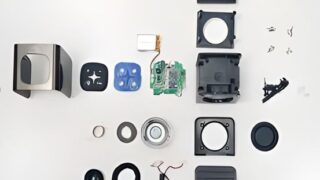A GPS tracker is a sophisticated device designed to accurately pinpoint the real-time location of an object, person, or vehicle by utilising the Global Positioning System (GPS). By receiving signals from GPS satellites, it employs triangulation techniques to precisely calculate and deliver geographic coordinates, including latitude and longitude.
GPS trackers are manufactured and distributed globally, involving a diverse supply chain. Key countries known for GPS tracker production and distribution include China, South Korea, Taiwan, Germany, and India. China stands out as a major manufacturing hub, with numerous GPS tracker manufacturers.
China is a leading exporter of GPS trackers worldwide, supplying countries such as the United States, European Union member states, Australia, Brazil, and South Africa. Chinese GPS trackers are utilized for vehicle tracking, fleet management, logistics and personal tracking in these countries. China’s manufacturing prowess and competitive pricing make it a preferred choice for GPS tracker importers globally.
GPS Tracker Product Inspection Service for Components
The Bill of Materials (BOM) is a detailed inventory that encompasses all the materials and components necessary for the production of a specific product. It serves as a comprehensive document that outlines and specifies every item required during the manufacturing process.
Common sub-parts found in a GPS tracker includes:
- GPS Receiver Module
- Cellular Module
- Microcontroller Unit (MCU)
- Power Management Subsystem
- Memory Storage
- Sensing Subcomponents
- Communication Interfaces
- Enclosure and Mounting
- External Connectors
- Antennas
Common defects that can occur in the sub-parts of a GPS tracker include:
- GPS Receiver Module: Antenna connection problems, Signal reception issues
- Cellular Module: Network connectivity issues, SIM card detection problems
- Microcontroller Unit (MCU): Software or firmware bugs, Hardware compatibility issues
- Power Management Subsystem: Voltage regulation problems, Battery performance issues
- Memory Storage: Data corruption or loss, Insufficient memory capacity
- Sensing Sub-components: Sensor calibration errors, Sensor malfunction
- Communication Interfaces: Connectivity issues, Interference or noise
- Enclosure and Mounting: Structural defects, Inadequate sealing
- Antennas: Antenna misalignment, Antenna damage or disconnection
When producing GPS trackers in China or Asia, it is highly advisable to conduct quality control and inspections on the sub-parts to ensure the overall quality of the final product. This is essential because the quality of the sub-parts significantly impacts the overall quality of the GPS tracker.
Our quality inspection company provides the expertise of local quality inspectors who can assist in verifying the usage of accurate components and materials during the production of your GPS tracker.
GPS Tracker Product Quality Check Service for Manufacturing
The manufacturing process of GPS trackers is intricate, encompassing several stages, each with its inherent quality risks. These risks need to be diligently managed to ensure the final product meets expectations.
During the manufacturing of GPS trackers, various quality check processes can be implemented to ensure that both electronic and mechanical components meet the required standards.
For electronic parts:
- Component Verification, Functional Testing, Over-current and Over-voltage Protection Testing, Temperature and Power Efficiency Testing, Safety Compliance Testing for Power Management System.
- Functional Testing, Programming Verification, Performance and Reliability Testing, Electrical Testing, and Statistical Process Control (SPC) for Microcontroller Unit (MCU).
- Functional Testing, Calibration Verification, Interface Compatibility, and Environmental Testing for Sensor Interface.
- Functional and Interoperability Testing, Data Integrity Testing, Signal Strength and Range Testing, Performance and Compatibility Testing, EMI/EMC Testing for Communication Interfaces.
- Component Sourcing and Verification, Memory Management Testing, Performance and Stress Testing for Memory Management.
- Component Inspection, Soldering Quality, Circuit Functionality Testing, Over-voltage and Over-current Protection, Efficiency and Power Dissipation and Electromagnetic Interference (EMI) Testing for Power Supply Circuitry.
- PCB Inspection, Electrical and Functional Testing, and Firmware/Software Validation for Data Processing Circuitry.
- Visual and Functionality testing, Signal Integrity and Compatibility Testing, Durability and Reliability Testing, and Electrostatic discharge (ESD) protection for I/O Interfaces.
- Functional and Environmental Testing, Aging and Reliability Testing, and Electrical Testing for Clock and Timing Circuitry.
For mechanical parts:
- Visual Inspection, Dimensional Accuracy, Material Quality, Assembly and Fit, Functionality Testing, Sealing and Water Resistance, and Impact and Drop Testing for Enclosure.
- Visual Inspection, Functional Testing, Durability and Lifespan Testing, Materials and Manufacturing Process Verification, and Ergonomic Evaluation for Buttons and Keypads.
- Material Inspection, Dimensional Accuracy, Strength and Durability Testing, and Functionality Evaluation for Mounting Mechanisms.
- Visual Inspection, Fit and Compatibility, Material Quality, Battery Contact Points, Ergonomics and Accessibility, Durability and Testing, and Environmental Considerations for Battery Compartment.
- Dimensional Accuracy and Material Quality, Visual Inspection and Functionality Testing, Compatibility Verification and Assembly Inspection, Environmental and Mechanical Testing for Connectors and Ports.
- Material Inspection, Assembly Process Evaluation, Physical Inspection and Mechanical Testing, Environmental Testing, and Antenna Compatibility for Antenna Mounting Points.
- Material Inspection, Dimensional Accuracy, Visual Inspection, Compression and Resilience Testing, Environmental Testing and Sealing Performance Verification for Seals and Gaskets.
- Visual Inspection, Torque Testing, and Salt Spray Testing for Screws and Fasteners.
Ensure that your manufacturer conducts the necessary checks prior to delivering your GPS tracker. In the event that they do not, our quality inspection team is available to provide support in terms of quality control, inspection, and on-site testing processes.
Quality control plays a crucial role in ensuring the successful mass production of GPS trackers.
Our comprehensive quality inspection services, which encompass Production Monitoring and Factory Audit, empower you with the necessary support and resources to effectively mitigate risks, detect and resolve quality concerns, and maintain optimal control over your production process. By availing our services, you can ensure the smooth execution of mass production and achieve the desired outcomes for your business.
After the completion of manufacturing all the parts and sub-parts by sub-suppliers, the assembler, which is the factory from where the final product is purchased, typically carries out the following procedures:
- Sourcing components internally from its manufacturing division.
- The parts undergo an incoming quality control process to ensure inspection and assessment. (or not)
- Ensuring proper alignment and attachment of the parts. (or not)
- To ensure proper functionality of a GPS tracker, it is often subjected to testing on a test bench or through a human test bench.
- The final quality control check can be conducted. (Or may be omitted for rush shipments)
- Proper packaging of the product
Each process carries inherent quality risks that require careful consideration and mitigation (Especially when human processing is involved, as it is typically less repeatable).
Our quality inspection agency provides end-to-end solutions to mitigate production risks in GPS tracker manufacturing. We offer comprehensive services, including the establishment of quality control checkpoints and the deployment of experienced quality inspectors who closely monitor the manufacturing process at various stages.
GPS Tracker Quality Control & Typical Defects
Quality issues in GPS trackers can arise from various factors, such as the quality of components and materials used, the expertise of the workmanship involved, and the dependability of the testing procedures employed.
Common defects often encountered in GPS trackers include:
- Signal Loss
- Inaccurate Positioning
- Battery Performance Problems
- Connectivity and Communication Failures
- Firmware or Software Bugs
- Data Transmission Failures
- Sensing Component Malfunctions
- User Interface Problems
- Enclosure or Waterproofing Issues
- Integration Challenges
- Mechanical Issues
- Data Storage and Memory Issues
- Quality of Materials
- Design Flaws or Inadequate Testing
Have you encountered any other types of defects? If so, please provide additional information in the commentary section.
If you are experiencing quality issues with your GPS tracker and need assistance in identifying the root cause, we are ready to help. Please use the button below to get in touch with us.
GPS Tracker Quality Control Service, what do we check:
During product inspection and quality control of GPS trackers, our inspectors prioritize several aspects, including but not limited to the following:
- Functional Testing: Our quality control check service conducts thorough functional testing to ensure proper GPS tracker operation. This includes verifying GPS signal, cellular network connectivity, external communication, UI responsiveness, and specific functionalities like motion or environmental sensing.
- GPS Performance: Our quality control service evaluates GPS performance by assessing signal strength, time to first fix, accuracy, and consistency of location data. This includes checking the device’s ability to acquire satellite signals, calculate precise positioning information, and maintain a stable GPS connection.
- Battery Performance: Evaluate the GPS tracker’s battery performance, encompassing battery life, charging efficiency, and power management, to ensure optimal device operation and meet expected runtime.
- Communication Testing: Verify the GPS tracker’s communication capabilities by testing its ability to transmit and receive data over cellular networks or other channels. This includes assessing data transmission, signal stability, call functionality (if applicable), and compliance with communication protocols.
- Mechanical Inspection: We visually inspect and functionally test the mechanical components, including the enclosure, buttons, connectors, and mounting mechanisms to identify any physical defects or issues such as loose connections, poor sealing, or improper fit.
- Software and Firmware Check: We perform thorough software and firmware reviews on the GPS tracker to ensure it is up-to-date, bug-free, and compliant with necessary specifications. This includes verifying software versioning, compatibility with operating systems/platforms, and adherence to industry standards.
- Environmental Testing: The GPS tracker undergoes environmental testing to assess its performance and durability in various conditions. This includes temperature, humidity, shock, vibration, dust, and water exposure tests, to ensure compliance with relevant IP ratings.
Require GPS Tracker quality inspections? Contact us to schedule your next inspection with our representative. Click the button below to get started.
GPS Tracker Factory Audit Service, what do we check
Choosing the right manufacturer can prevent quality issues during GPS Tracker production and import.
Performing a comprehensive factory audit or vendor evaluation prior to placing an order with a GPS tracker manufacturer can effectively prevent selecting an inadequate manufacturer, saving time, money, and energy.
Our electronic experts can provide unbiased opinions on the GPS tracker factory you plan to collaborate with.
Looking for a factory audit or vendor assessment for your GPS tracker production? Our quality assurance company specialises in organising and conducting comprehensive checks on critical factors, such as (but not limited to):
- Facility and Production Capacity
- Quality Management System
- Compliance with Regulations and Certifications
- Manufacturing Processes and Controls
- Supply Chain Management
- Product Testing and Quality Control
- Workforce Competency and Training
- Corrective and Preventive Actions
- Social Compliance and Ethical Practices
- Documentation and Communication
Need assistance with a GPS tracker manufacturer factory audit? Our team is ready to help! Click below to connect with our representatives and schedule your audit today.
GPS Tracker Lab Testing Service, what do we check
Importers of GPS trackers often fail to effectively integrate compliance and reliability, prioritising one over the other.
When importing GPS trackers, it’s crucial to comply with regulations and ensure quality, durability, and reliability. The question is, how can these attributes be guaranteed?
Our facilities and expertise enable us to conduct comprehensive lab tests to ensure GPS trackers meet desired specifications. These tests include:
Accreditation and compliance testing:
- RoHS (Restriction of Hazardous Substances) Certification
- FCC (Federal Communications Commission) Certification
- CE Marking
- IP (Ingress Protection) Rating
System testing we can perform on site:
- GPS Signal Acquisition and Accuracy Testing: Our lab testing services verify the GPS tracker’s satellite signal acquisition and accurate positioning capabilities. We conduct tests in diverse environments and locations to evaluate its performance across different conditions.
- GPS Tracking and Navigation Testing: We assess the GPS tracker’s tracking and navigation performance by evaluating its real-time location updates, route tracking, and navigation guidance. Our focus is on verifying the accuracy and consistency of the location data.
- Cellular Network Connectivity Testing: Test the GPS tracker’s cellular network connectivity, ensuring reliable connection, data transmission, and effective communication with remote servers or control centers.
- Communication Protocol Testing: We evaluate the GPS tracker’s compatibility with communication protocols like TCP/IP, UDP, SMS, and fleet management system protocols. Verify its capability to transmit and receive data through various communication channels.
- Motion Detection and Sensor Testing: As a GPS tracker lab testing service, we verify the functionality of motion detection and additional sensors (e.g., accelerometer, gyroscope). Our tests ensure accurate detection of motion events, orientation changes, and other sensor-specific functions.
- Battery Life and Power Management Testing: We evaluate battery performance, including life under various usage scenarios and power-saving features. We test charging efficiency and verify accurate reporting of battery level and status.
- User Interface and Configuration Testing: As a GPS tracker lab testing service, our focus is to evaluate the user interface and configuration options of the device. We conduct tests to assess its ease of use, menu navigation, and configuration settings, ensuring that users can easily configure and customise the device according to their specific requirements.
- Data Storage and Retrieval Testing: Test the GPS tracker’s ability to store and retrieve location history, trip data, and other relevant information accurately and reliably. Verify the availability and accuracy of stored data for future analysis.
Please feel free to contact us if you wish to test the quality of your GPS trackers before they are shipped from the factory. You can reach us using the button below.
Related Posts
Related Pages
GET READY TO SECURE YOUR SUPPLY CHAIN
Get valuable advices, tips, recommendations from our quality management experts and inspection specialists
CONTACT US NOW ! Feel the form below.









